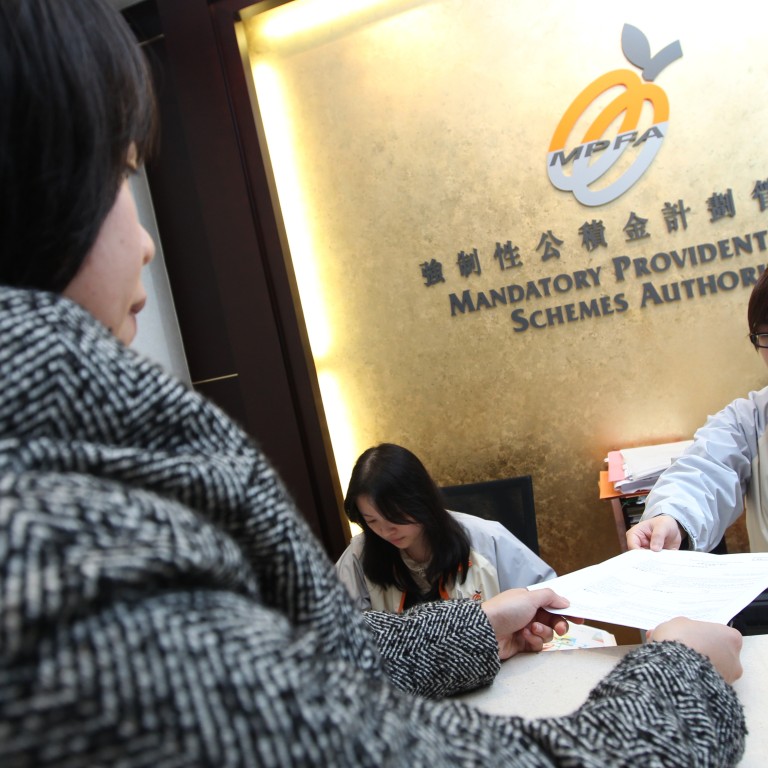
Hong Kong's MPF cannot deliver the retirement security it promises
I refer to the letter from Betty Chan, head of the external affairs division of the Mandatory Provident Fund Schemes Authority ("MPF's fund expense ratio has dropped", May 12).
Ms Chan says the average expense ratio of MPF funds has fallen from 2.2 per cent in 2007 to 1.62 per cent today.
I wanted to put this into perspective. If one assumes an average 20-year period of holding for an MPF account and an average annual rate of return of 7 per cent (which is the current accepted conservative actuarial rate of compound return for most corporate pension funds), a 1.62 per cent expense ratio means, at retirement, nearly one-third of the returns on investments have gone to the banks and fund managers involved in running the account.
In contrast, the average expense ratio for MPF-like products globally is closer to 0.15 per cent.
This means Hong Kong's MPF system is running an average expense ratio that is more than 10 times the global norm.
After 20 years of paying the 1.62 per cent expense ratio Ms Chan speaks of, the banks and fund managers involved walk away with approximately 30 per cent of your money.
By contrast, in the rest of the world, they pocket approximately 3 per cent on average after 20 years.
I may also add that Ms Chan's calculated average is not actually weighted to a prudent mix of investments to allow for a secure retirement.
Most academic studies regarding a proper investment mix for someone retiring in 20 years would require at least a 60 per cent weighting in equities on average to compensate for the greatest risk a potential retiree faces, inflation.
Ms Chan's arithmetic average expense ratio is artificially low because of an overweight in her calculations of cash and fixed income funds, which have far lower expense ratios than their equity brethren.
A Hong Kong MPF portfolio of investments structured with a 20-year time horizon in accordance with best global practices as defined by the world's best academics on pension theory, would, in fact, have a likely expense ratio 40 per cent above the figure Ms Chan quotes.
Unfortunately, as currently constructed, the MPF in Hong Kong is a great idea in theory, which sadly in its current incarnation has a virtually nil mathematical chance of delivering the retirement security it was designed to provide.

